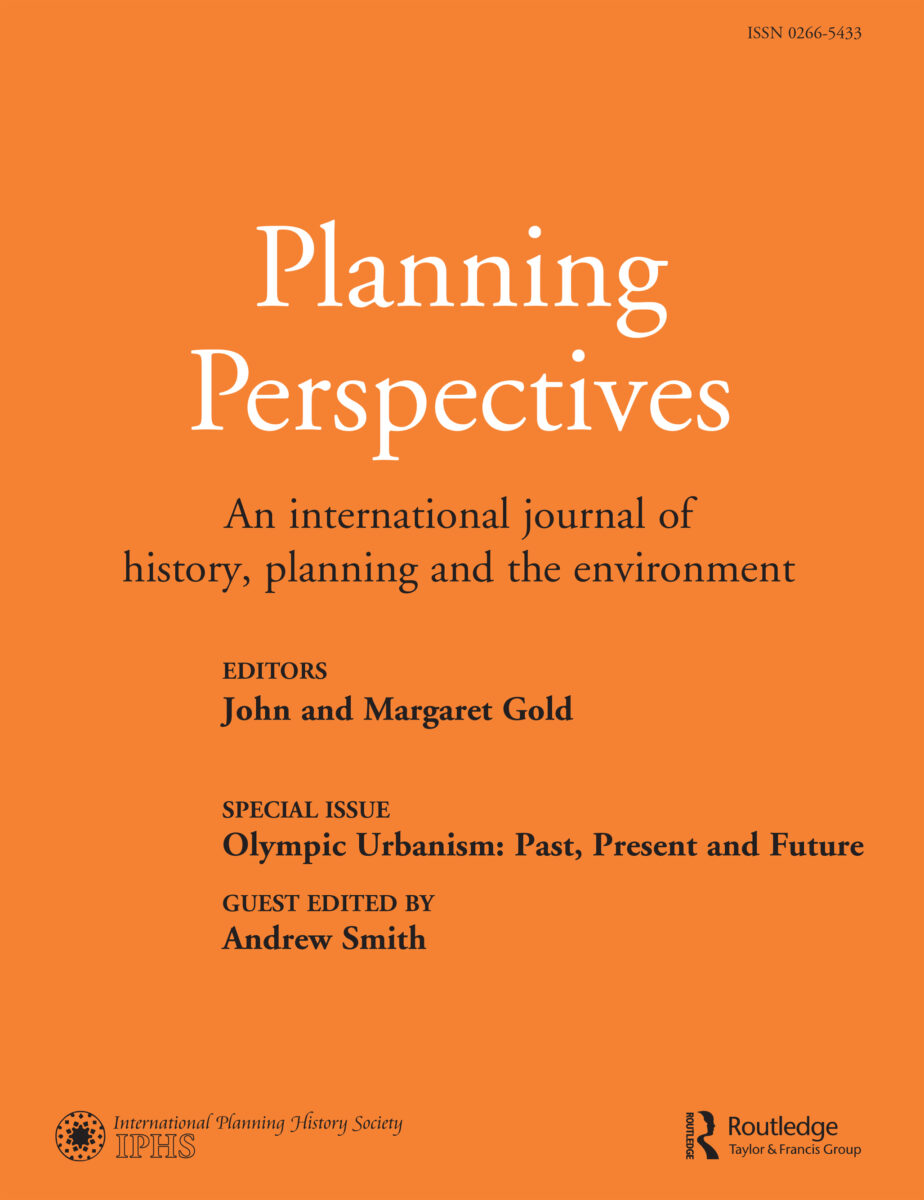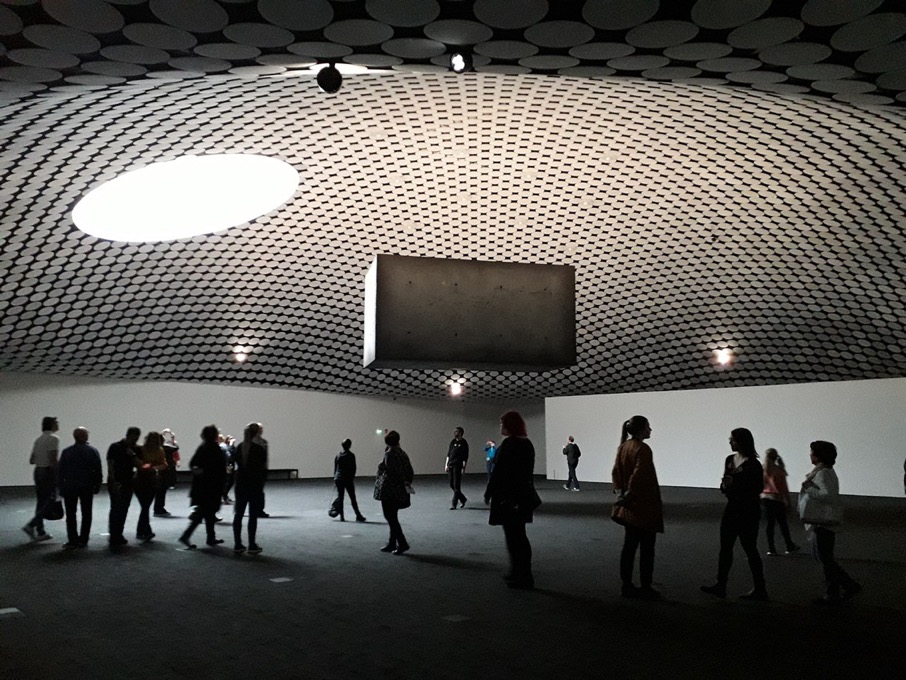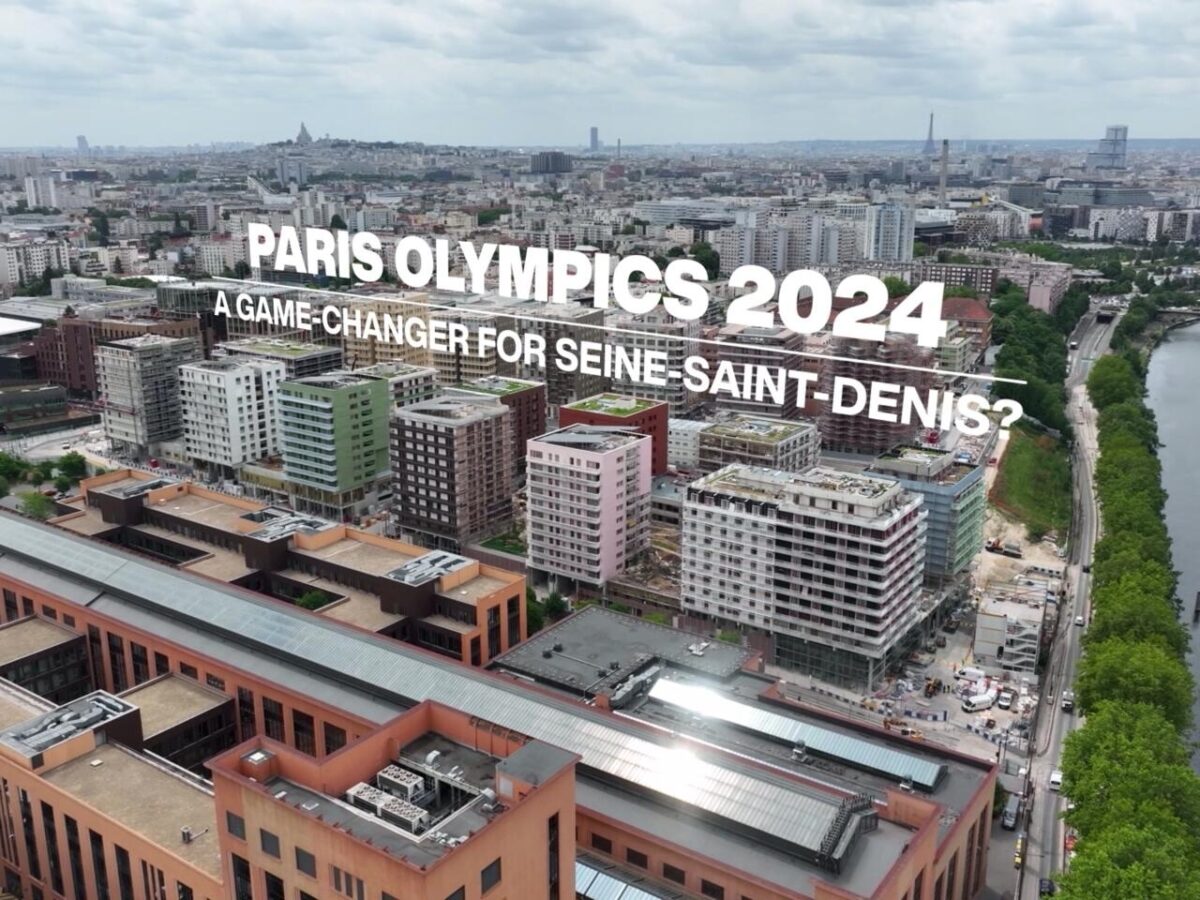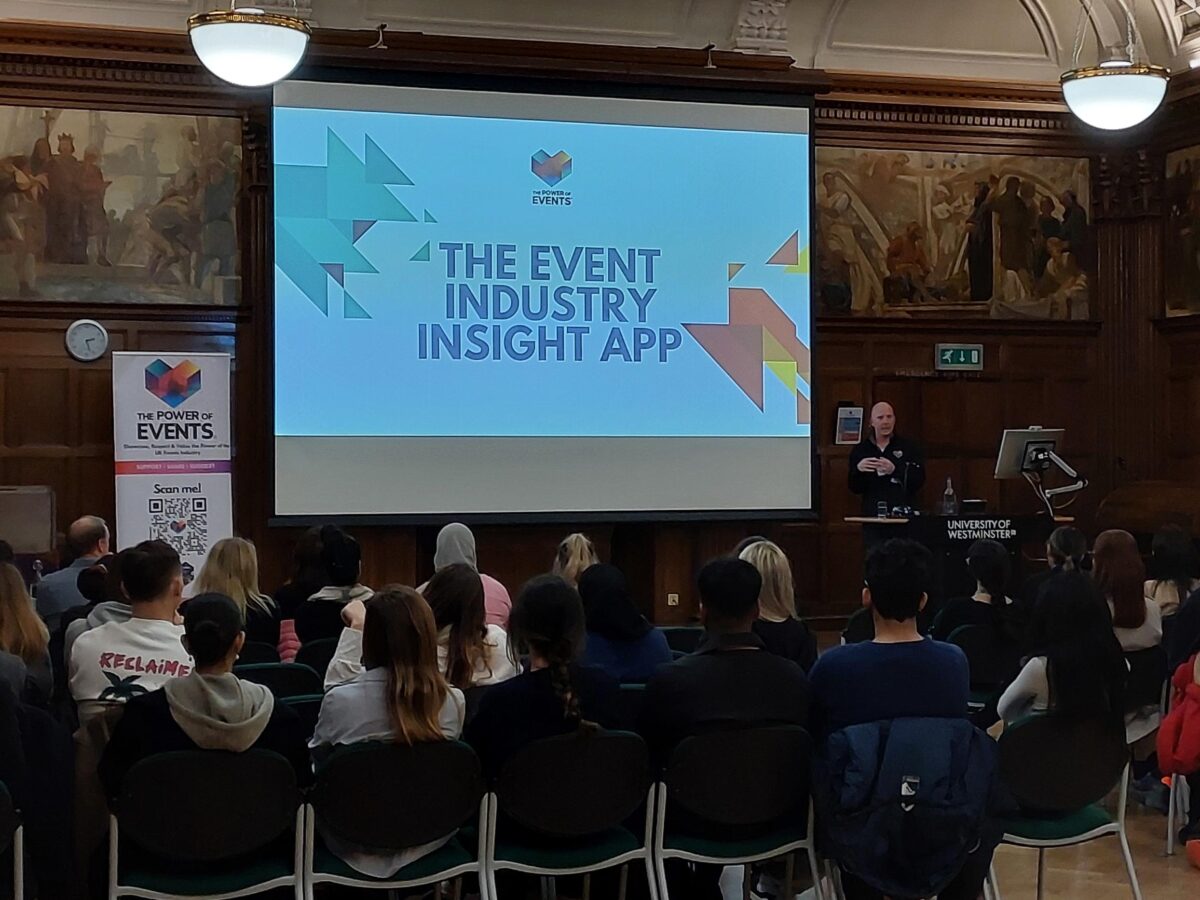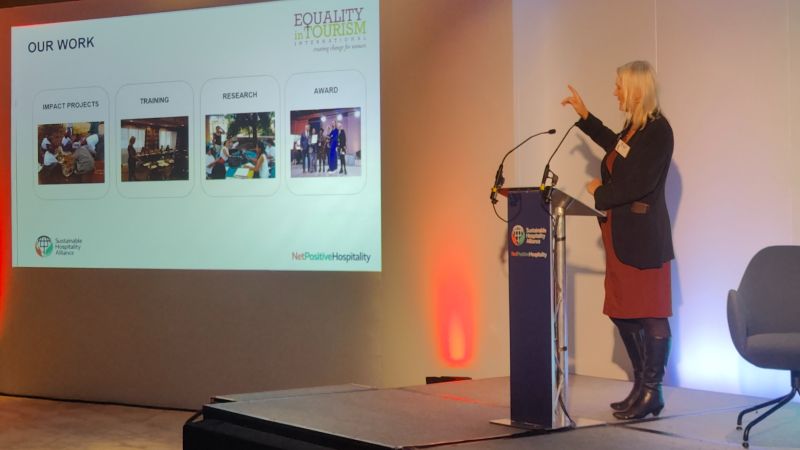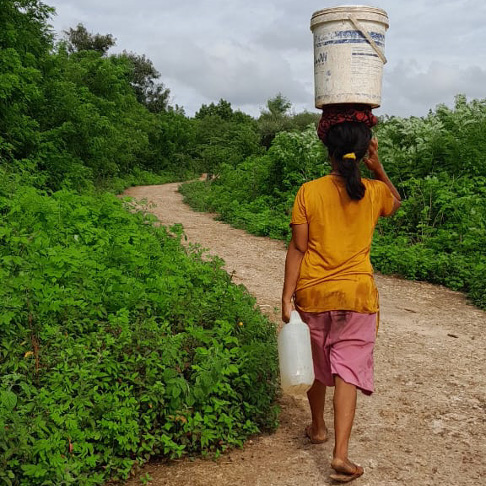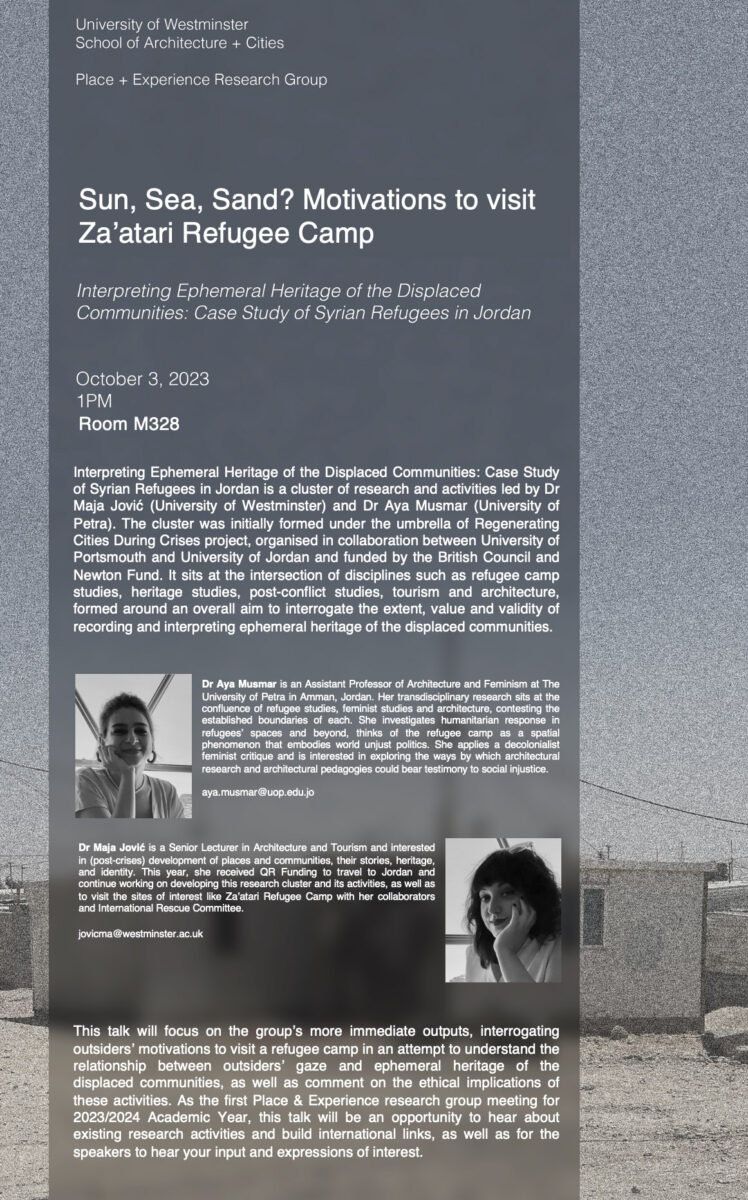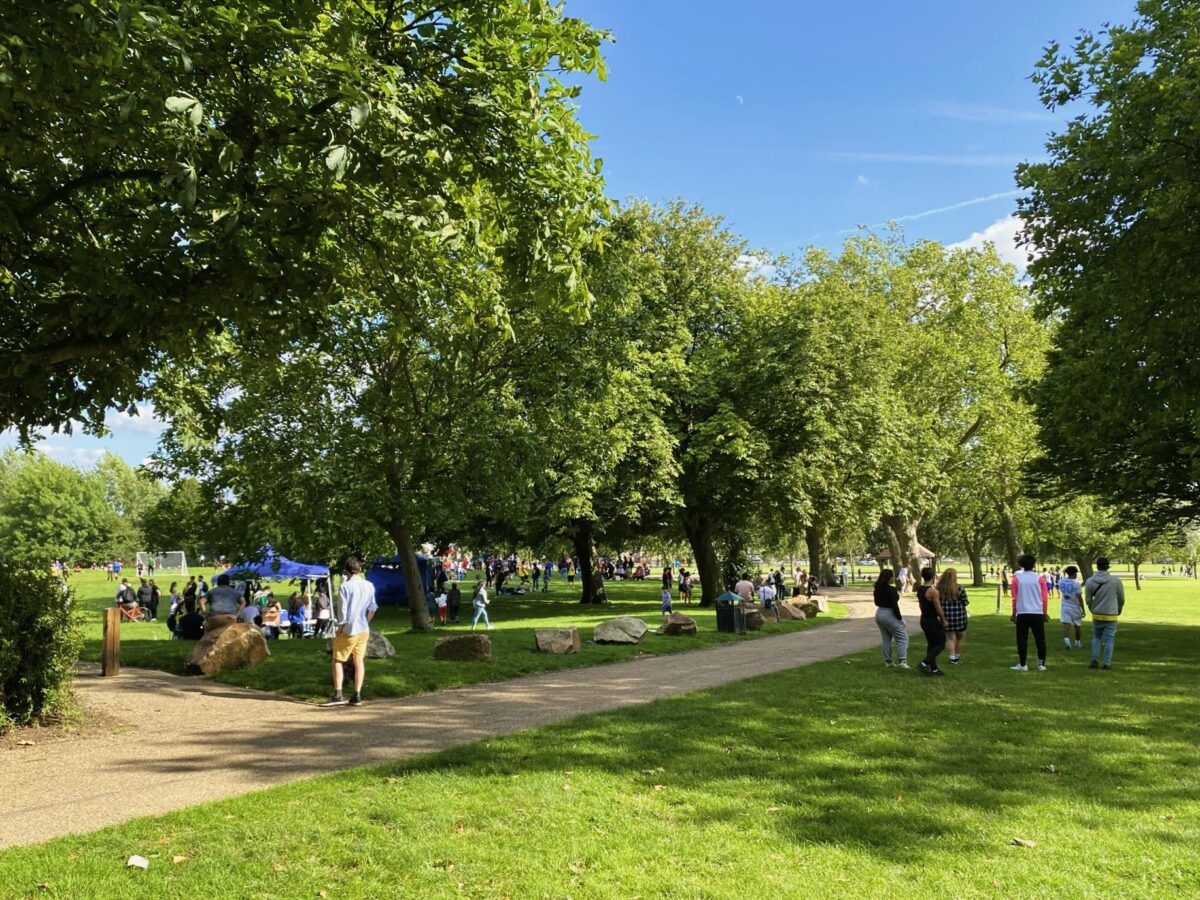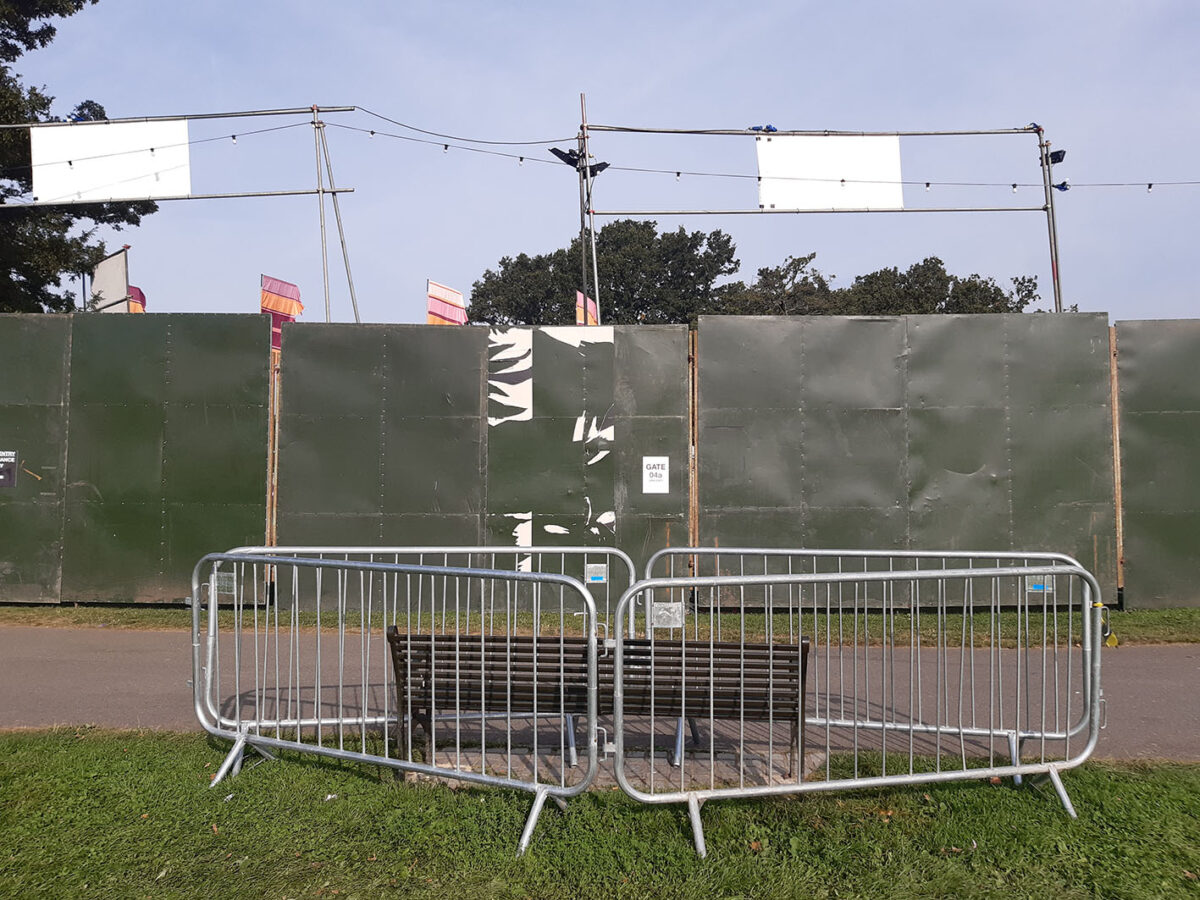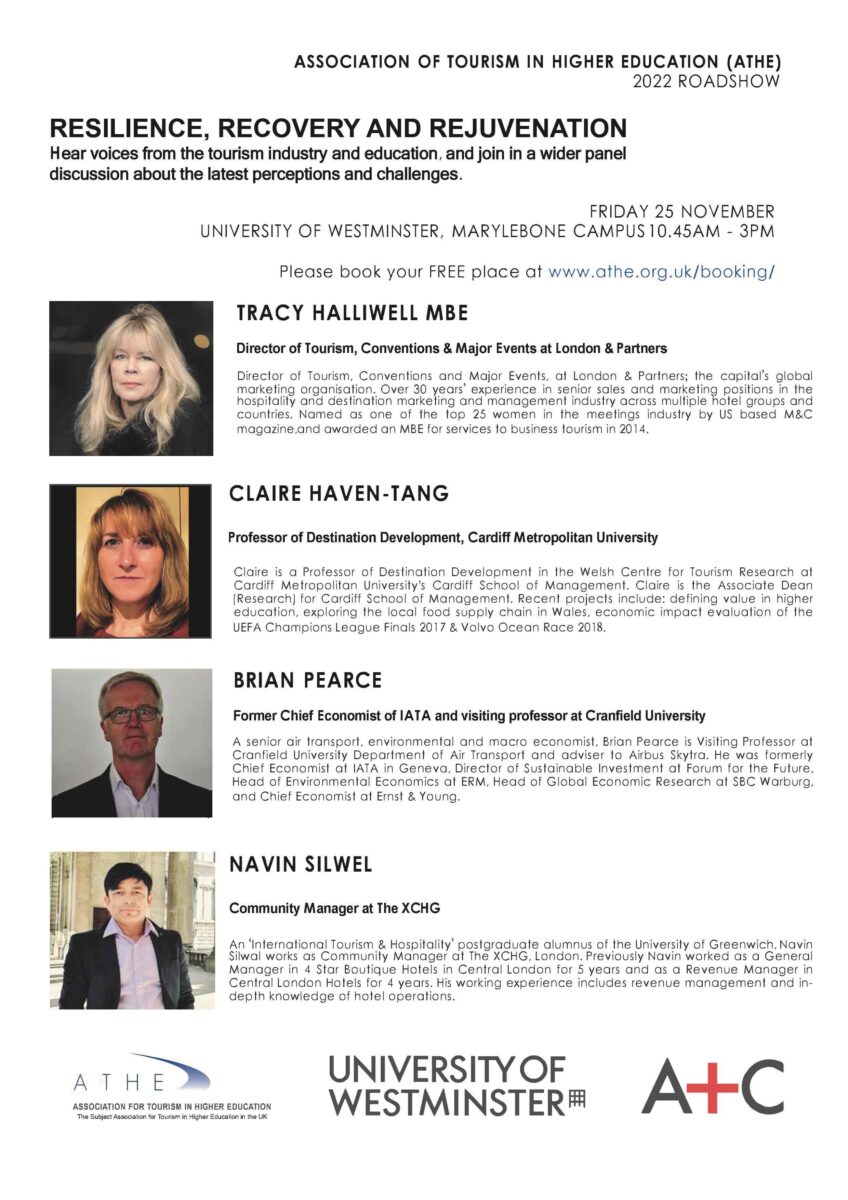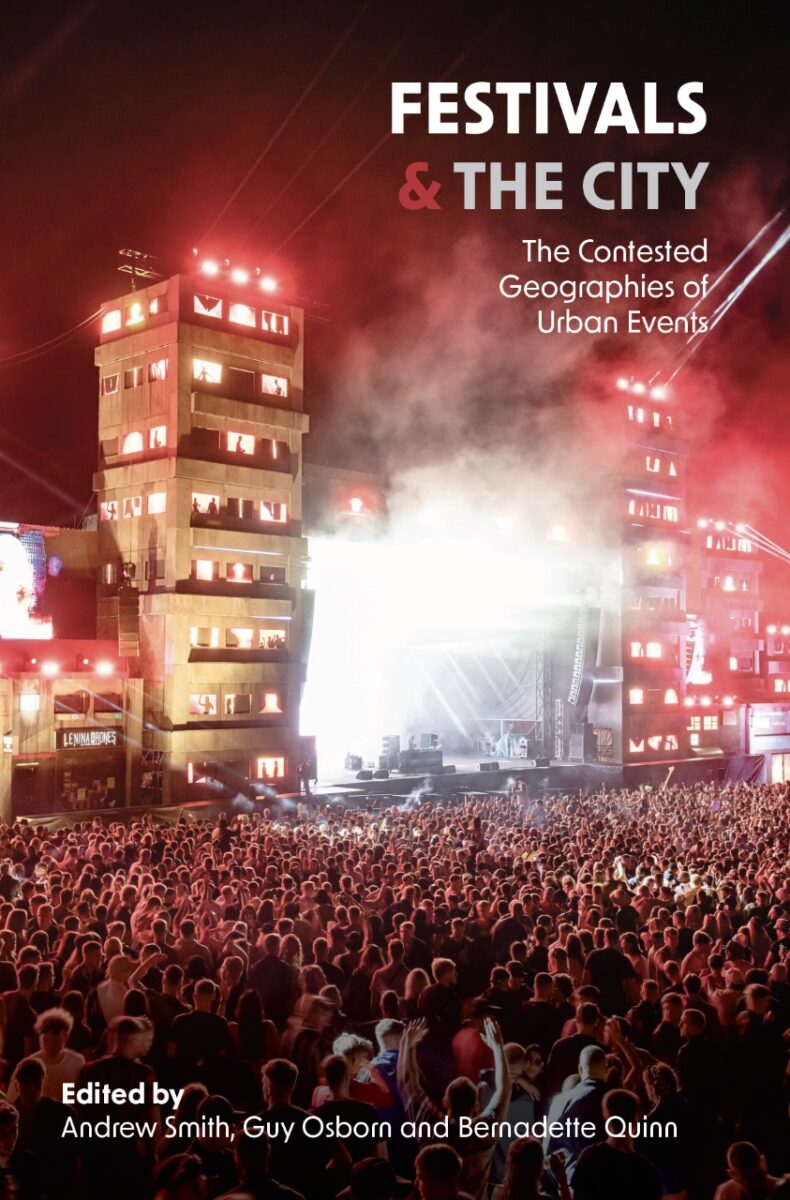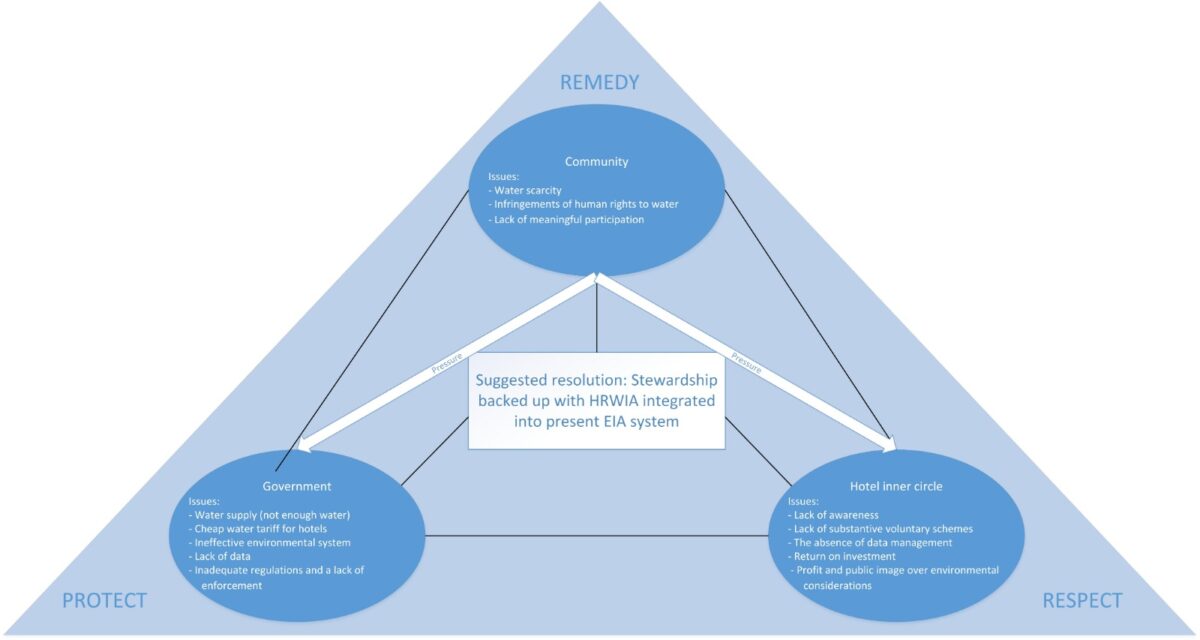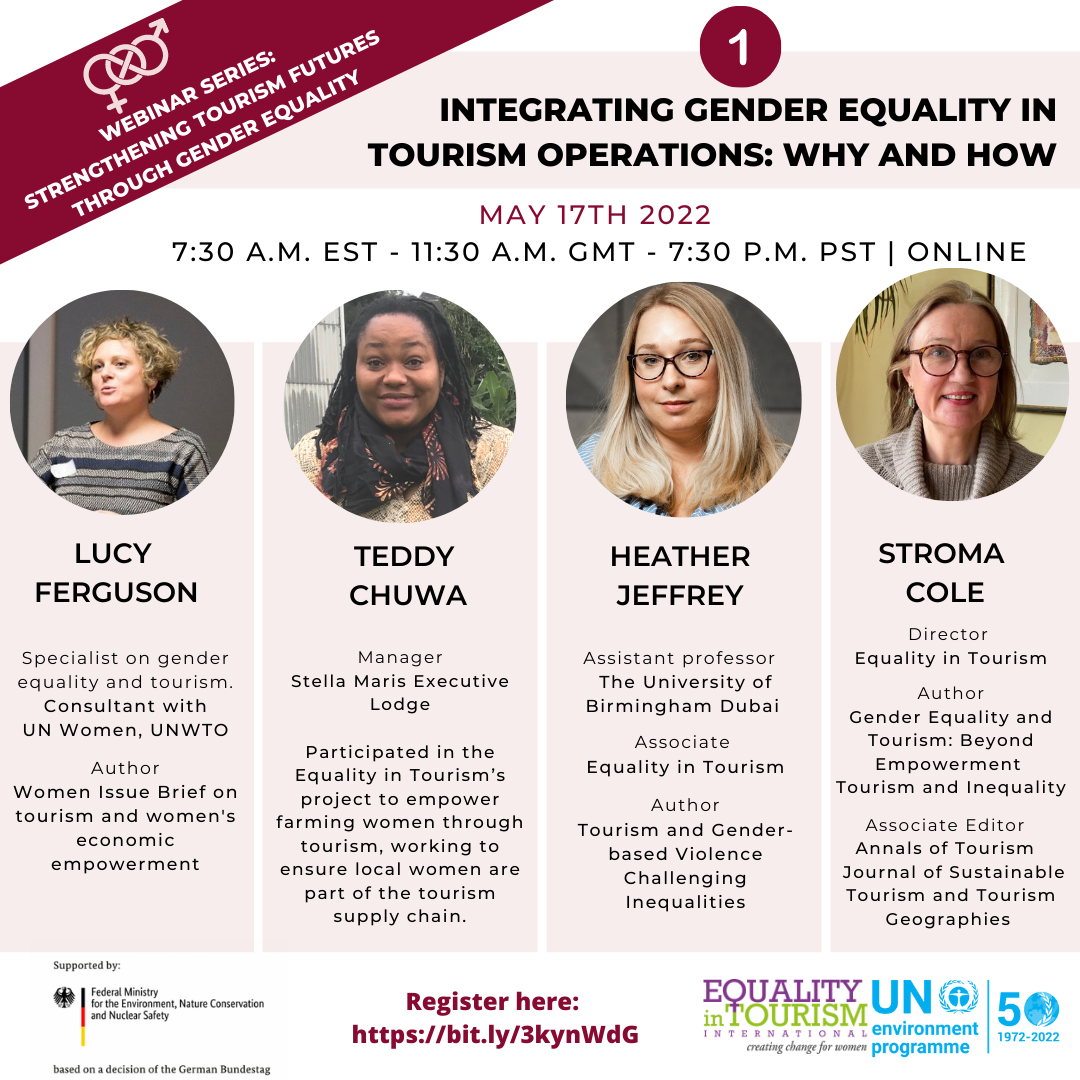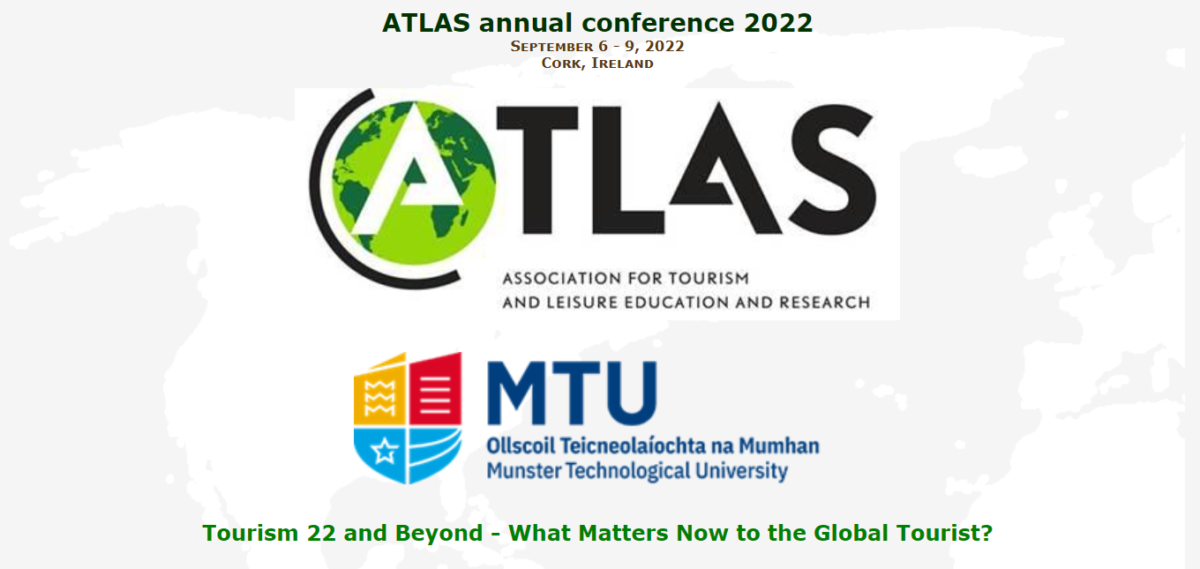Place and Experience
Place and Experience is one of five new research groups established by the School of Architecture and Cities in 2021. The Place and Experience Research Group focus on tourism and events research with specialisms in city tourism and mega events, the tourist and destination community experiences, and sustainability.
We have a shared concern of the social, environmental as well as business challenges that bringing people to places pose. We are interested in broader analyses of tourism and events and how they link with understandings of place and experience in architecture and urban design, development studies, and geography. Much of our work is inter/trans-disciplinary and is internationally focused, reflecting the cosmopolitan profile of our staff and host city.
We have a supportive environment for our PhD students and welcome new applications from research students interested in pursuing projects linked to our work. We disseminate our work widely through seminars, symposia, conferences, published articles and books, and regularly host events. We host visiting researchers and have several visiting research fellows, visiting professors and an Emeritus Professor (Robert Maitland) who all play an active role.
For more about the Place and Experience Research Group go here.
Smith, A., Gold, J. R., & Gold, M. M. (2024). Olympic urbanism: past, present and future. Planning Perspectives, 39(3), 487–499. https://doi.org/10.1080/02665433.2024.2344598
The urbanization of the Olympic Games and the continuing evolution of the IOC-host city relationship invites deeper consideration of Olympic urbanism and its role in shaping multiple cities across the world. This special issue of Planning Perspectives takes up this challenge, placing particular emphasis on planning histories and historiographies. The timing of its publication in 2024 is significant. Besides being the year that celebrates the Games of the XXXIII Olympiad, 2024 marks the centenary of the previous Paris Summer Olympics and of the first ever Winter Olympic Games at Chamonix in France’s Haute-Savoie
This seminar introduces ongoing research on the role that events play in fostering innovation in a sustainable way. It focuses on how events can become places and spaces for identifying and experimenting with new forms of sustainable living and doing business. It is based on a multi-disciplinary study combining a systemic perspective derived from institutional theory with a new view of prototyping from service design research. To understand how events can contribute to sustainable innovation, we need to consider the role they play in the ecosystem that provides the context where stakeholders negotiate values and agree on a common agenda.
As global tourist cities increasingly experience the negative impacts of overtourism in inner city districts, mega events such as the Olympic and Paralympic Games can be seen as opportunities to develop tourism in peripheral areas in need of regeneration. The Paris 2024 Olympics are a case in point because, while many Olympic and Paralympic events will take place in iconic venues in the historic centre, some of the key Olympic venues and new developments are located in the suburban district of Seine-Saint-Denis. During the bidding process, the expected legacy for the Seine-Saint-Denis region played a crucial role in supporting Paris 2024’s bid.
The Power of Events is an industry-led initiative that aims to showcase the UK Events Industry. The not-for-profit organisation provides a platform that gathers all the major industry players and collaborates with selected universities in the country to carry out research on the social, cultural and economic value of events. The Tourism and Events Team at UoW hosted the launch of the PoW app on October 17th at Fyre Hall, Regents Campus. The app aims to engage students, industry professionals and academics in future research projects that will support the advocacy work carried out by the PoW. The event was attended by students, industry representatives and alumni.
Dr Stroma Cole, Reader in the School of Architecture and Cities, spoke at the Mainstreaming Net Positive Hospitality Summit, organised by the Sustainable Hospitality Alliance, on driving sustainability in tourism through equality and inclusion.
The event explored how to push positive change in the hospitality industry while keeping sustainability at the heart of operations. The organisation has recently launched a five-year strategy to support the growth of the sector sustainably and responsibly to support their goal of bringing the hospitality industry together to tackle worldwide environmental and social challenges.
Gender based violence is a global pandemic and water insecurity is increasing in intensity and extent. In this seminar, Stroma Cole discussed a study that used qualitative and quantitative data to examine the association between these two global health threats. A significant positive association was found between household water insecurity and reported gender-based violence in Sumba, Indonesia. The concept of ‘gender-based water violence’ was defined as the spectrum of stressors associated with water insecurity that are so extreme as to significantly threaten human health and well-being, particularly that of women and girls.
This talk will interrogate outsiders’ motivations to visit a refugee camp in an attempt to understand the relationship between outsiders’ gaze and ephemeral heritage of the displaced communities, as well as comment on the ethical implications of these activities. As the first Place & Experience research group meeting for 2023/2024 Academic Year, this talk will be an opportunity to hear about existing research activities and build international links, as well as for the speakers to hear your input and expressions of interest.
In this presentation, I explore small-scale civic gatherings in Finsbury Park and their spatial configurations. Using the lens of conviviality I study how comfortable park users are around difference, and the values of inter-ethnic interaction in public parks. Using the lens of conviviality I study how comfortable park users are around difference, and the values of inter-ethnic interaction in public parks.
Pale is the Old English word for fence, and to go beyond the pale means to have gone beyond the limits of acceptable action. In this presentation, I discuss whether the installation of temporary fencing in public parks to secure ticketed festivals is now beyond the pale. Fences restrict access, but they also affect how spaces are perceived, used and managed. I use photographs taken in London’s parks to illustrate the materiality of these temporary structures, but also their symbolic significance and wider effects. My analysis emphasises the (often overlooked) importance of fences, and the splintered and sequestered nature of contemporary cities – where citizens are increasingly ‘fenced off’.
With a local/regional focus, we asked 4 speakers to present on “resilience, recovery, and rejuvenation” and what it means for present and future tourism professionals. A key focus of the discussion was around the ways tourism education and industry can work together to build a better future for tourism.
In each location, we heard from a key industry player, a DMO, an academic, and a graduate alumnus, followed by an open forum discussion.
Smith, A., Osborn, G. and Quinn, B. (Eds.) Festivals and the City: The Contested Geographies of Urban Events. London: University of Westminster Press. Pp. 1–15. London: University of Westminster Press.
This edited collection explores how festivals and events affect urban places and public spaces with a particular focus on their role in fostering inclusion. The book focuses on Western European cities and features 15 chapters written by 28 contributing authors and edited by Andrew Smith, Guy Osborn and Bernadette Quinn. There are chapters by some of the worlds’s leading festival experts (including a Chapter on Venice by John and Maggie Gold), as well as contributions from some of the best early career academics in the field. We’re proud that the work of several PhD students is featured too.
You can download the 308 page book for free by clicking on URL below.
Journal of Sustainable Tourism https://doi.org/10.1080/09669582.2022.2108041
This article explores the intersect between the human right to water, the United Nations Guiding Principles on Business and Human Rights, and the reality of hotels water use. Our qualitative study was based on semi-structured interviews, participant observation, and focus groups with hoteliers, government agencies and community stakeholders in Yogyakarta, Indonesia. It examines the challenges faced by hoteliers to respect the human right to water and why hotels do not voluntarily adopt the Guiding Principles. The impeding factors identified include a lack of awareness, a lack of substantive voluntary schemes, the water tariff, the absence of data management; return on investment, profit and
We are pleased to share one of the outputs of our HERA funded FESTSPACE project which examines the ways festivals and events affect the inclusivity of London’s parks. In collaboration with a local film maker we have produced a 21 minute film that illustrates how festivals can contribute to, rather than detract from, the publicness of park settings. The film focuses on one event – Latino Life in the Park – which was staged in Finsbury Park, London, in August 2021.
Integrating Gender Equality in Tourism Operations: Why and How? (for more details please see the image below)
